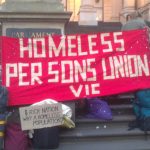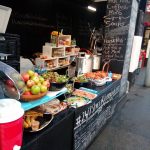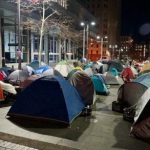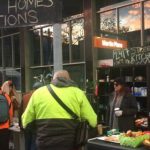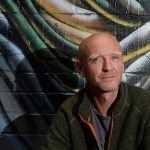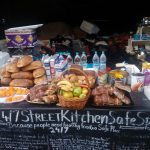The Impact of COVID on Sydney’s Homeless: An Interview With Lanz Priestley
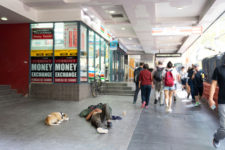
The Sydney CBD was almost deserted last Saturday evening. With the onset of the COVID-19 crisis, most locals were already choosing to spend their night at home. And this was even before the stage one coronavirus prevention measures came into play.
However, Sydney’s 24-7 Street Kitchen and Safe Space Community were back in Martin Place serving up a free meal for the city’s homeless community, who, due to their lack of a fixed address, don’t have the option to comfortably isolate themselves from the rest of the community.
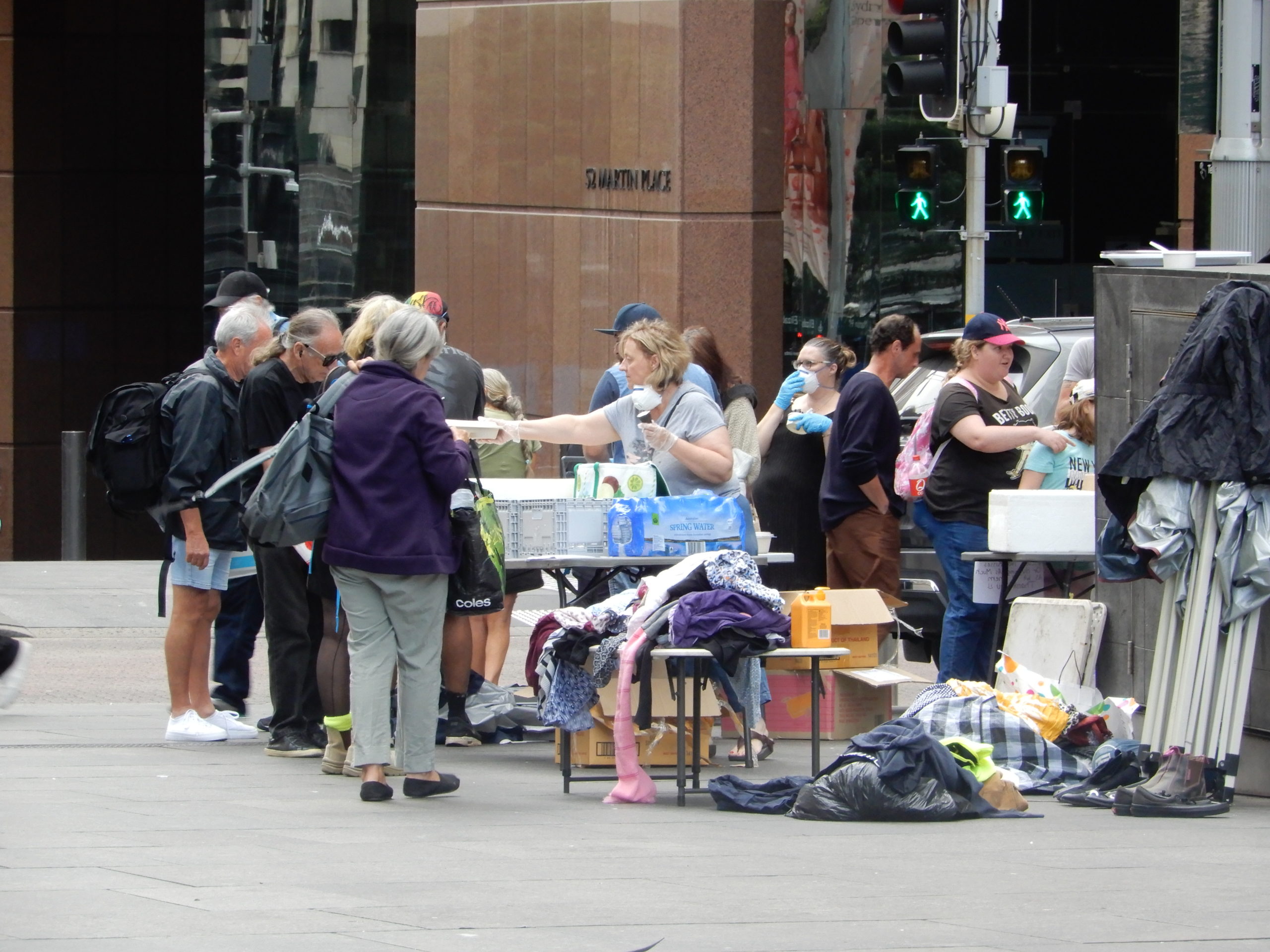
Those gathered were practicing social distancing and the volunteer staff were wearing masks. Presiding over it all was the unofficial mayor of Martin Place Lanz Priestley. He’s the man who launched the street kitchen in late 2016 and then ran it on a 24 hour basis for over eight months.
Today, the grassroots organisation also operates several services – including Blanket Patrol and Coffee Brigade – which provide those experiencing homelessness, and others in need, with provisions that many in the housed community simply take for granted.
In a time of crisis
The last City of Sydney street count occurred in February. It found 334 rough sleepers in the city. And there were also 505 people in temporary or emergency accommodation. However, these numbers are almost certainly to swell as many lose their jobs due to the virus.
For those sleeping out on the streets, the options for COVID are limited. They simply can’t avoid contact with others. They have nowhere to stockpile provisions. And self-isolating is impossible, even if they suspect they’ve contracted the coronavirus.
And with the need to practise social distancing, and the four square metre rule coming into play, the amount of beds available in temporary accommodation centres is likely to become scarcer as the crisis unfolds.
COVID-19 is known to be particularly detrimental for those with pre-existing health conditions and the elderly. And health issues are common amongst those being forced to live out on the streets, and the number of elderly people losing their homes has been growing over the last decade.
A saint of the street
Lanz Priestley has been a social justice warrior of the Sydney streets for many a year. Prior to his bringing the situation of the city’s rough sleepers to frontpage news back in 2017, he’d been running Occupy Sydney, which was the longest ongoing occupation of its kind on the planet.
And last Saturday he explained that his organisation will be operating throughout the COVID-19 crisis to make certain that the welfare of Sydney’s homeless is ensured, and their rights are upheld.
Sydney Criminal Lawyers spoke to Priestley about how COVID is impacting the rough sleeping community, the solutions he asserts authorities should take to protect them in this time of crisis, and the plans he’s hatching to further assist the community.
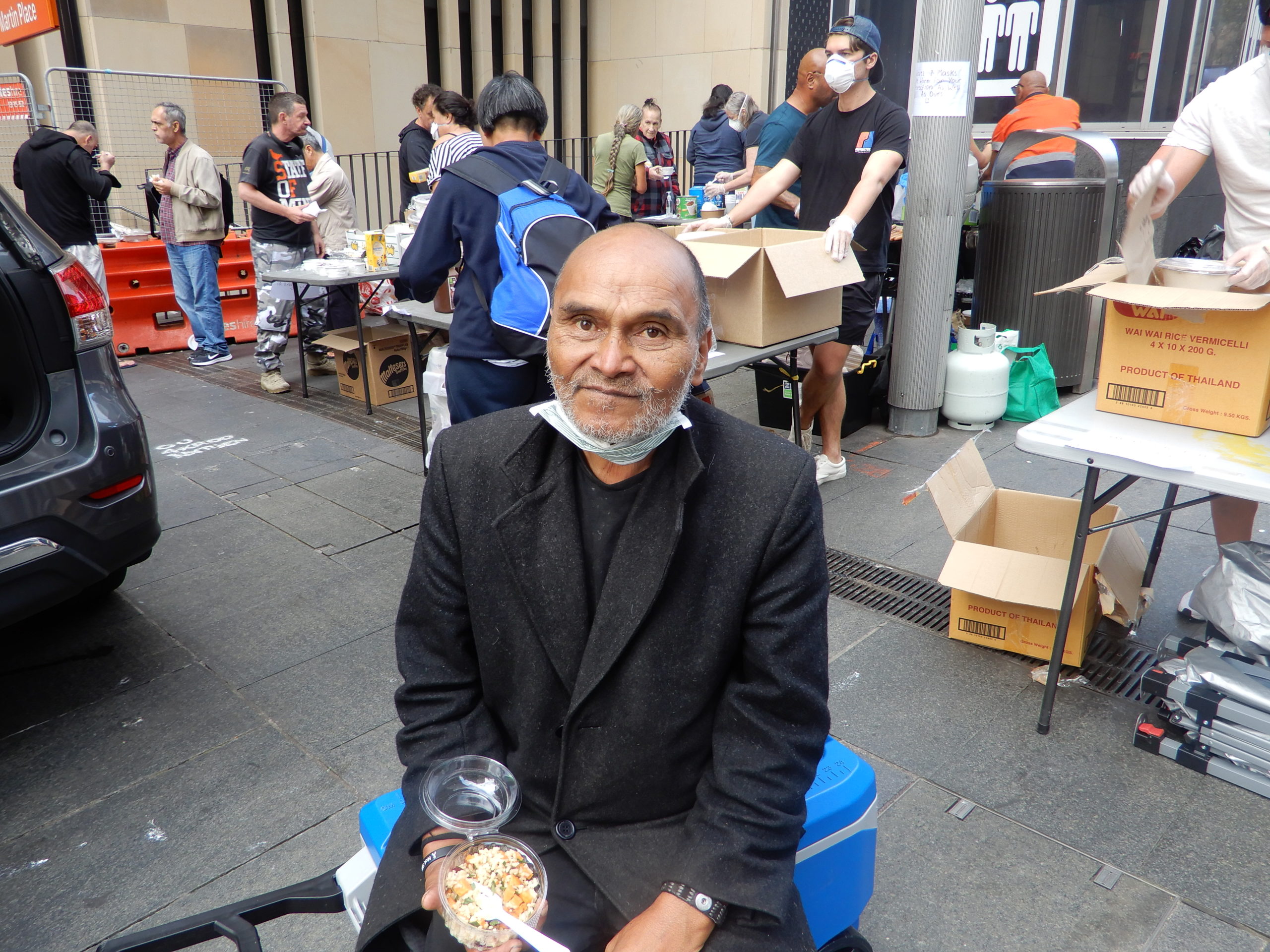
Firstly, COVID-19 infections are rising steeply in this country, and the preventative measures being applied are mounting every day. However, some of these provisions don’t carry over for people without a home.
Lanz, what are some of the difficulties for people experiencing homelessness that might not be so apparent to the housed community?
There’s the closure of services. One of the most critical ones is access to showers. A lot of the homeless community that work rely on 24 hour gyms to shower.
More than 60 percent of rough sleepers work full time in restaurants and hospitality: precisely the sort of businesses that have to shut down.
So, they’re all losing their income. And a lot of them are now standing in dole queues. Some of them aren’t eligible for the dole. An example is Kiwis who came here after 2001.
We’re not just talking about rough sleepers with these job losses. It includes all the homeless, such as couch surfers.
These are people who’ve been able to support themselves until now, but with the mass closure of workplaces, it’s impossible for them to continue in that way.
So, many rough sleepers rely on gyms for showering?
Yeah, the ones that are working. It’s always been my advice to them that if they’re working, spend $100 dollars a month on a gym membership, because if they are working in a restaurant and finishing at midnight, there’s nowhere else for them to shower.
And the homeless centres that are staying open, like the Station, have got limited facilities. The Station only has two showers, and no capacity to expand that.
Have any special measures been put in place specifically to deal with how the virus may affect the homeless community?
Not as far as I’m aware. I haven’t heard a peep out of the homelessness minister at the state or the federal level.
How are homelessness service providers being affected? And how is this affecting people on the ground?
St Canice’s in Kings Cross has had to close. They do a lunch. They had to close because they can’t meet the four square metre rule. They’re reconfiguring their building so that they can meet the requirements and open again.
We might go and set up a kitchen outside there to continue the lunches. And we might see if we can open up their showers, which are in a separate building.
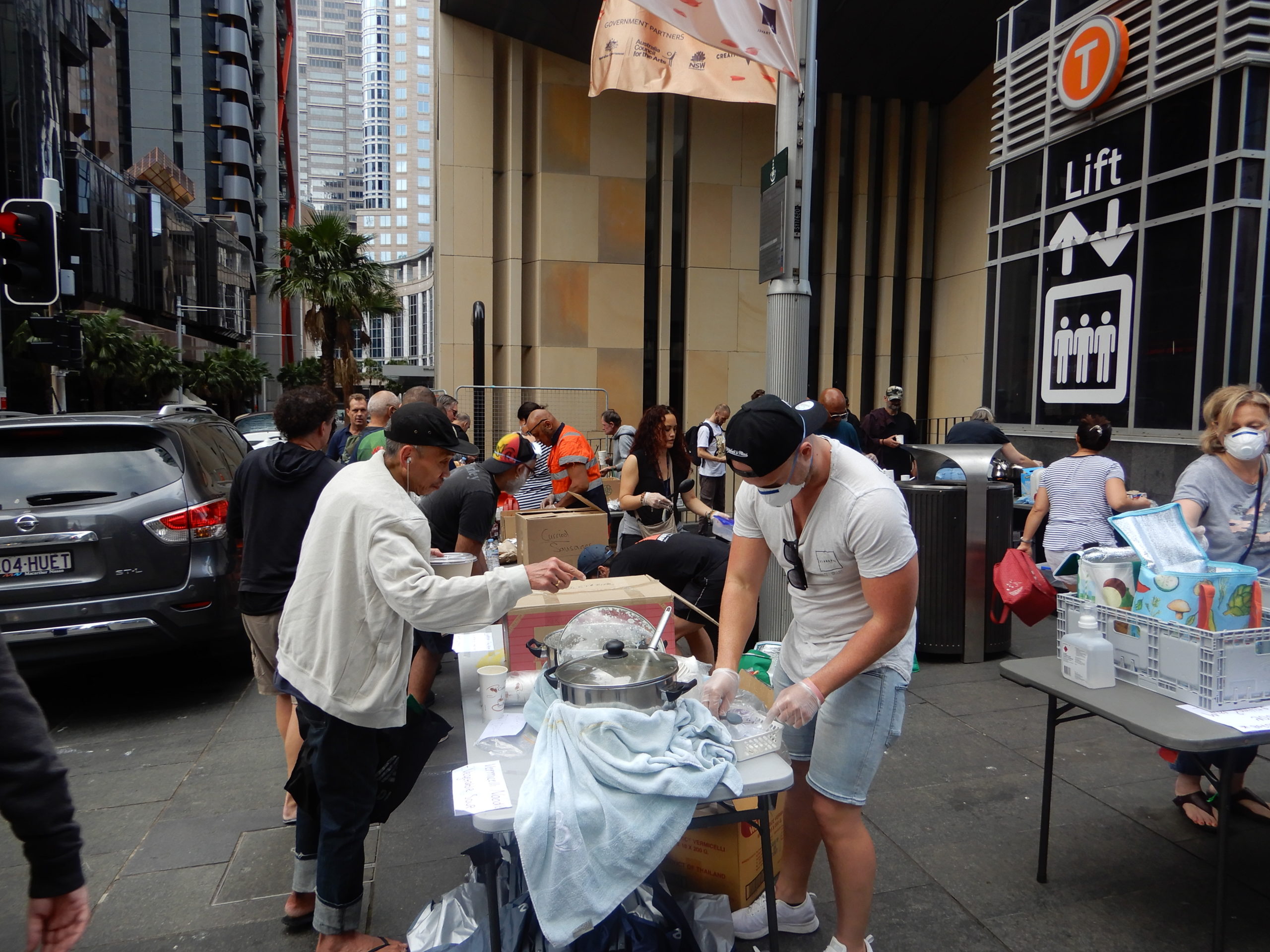
There are concerns that as there are so many people losing their jobs at the moment that the numbers of people ending up on the street will rise. What do you think ought to be done about this?
We’ve had quantified by the government that they’re expecting a million to be queuing for the dole. And what the government has got to do is act to stop these people losing their homes, whether that’s rental or homes that they’re buying.
They should have thought about this and done something ahead of the business closures. They foresaw the closures, so they must have seen that people weren’t going to have an income.
The dole is not going to cover a lot of mortgage payments. It’s not going to cover a lot of rents even. There are many people that are paying over $500 a week in rent.
We’re seeing the queues outside of Centrelink. And the minister has admitted that they’ve got a total incapacity to handle the volume.
What the government really needs to put in place is pandemic force majeure. That absolutely halts the need to pay any bills.
The banks are announcing that they will waive the necessity to pay your mortgage out for three months, but then they say they’ll roll the interest into your loan. Now, that’s not going to work.
What we need is a force majeure, which suspends the necessity to pay those bills.
There’s been a call for a rent freeze, but that doesn’t work either. Because it leaves people that are buying their homes out, and it also leaves the landlords out.
A rent freeze removes the obligation to pay rent. But, it doesn’t remove the obligation for the landlord to pay his mortgage. Where’s the landlord going to get his money to pay the mortgage from?
And are any of the issues arising for the homeless community due to COVID shining a light on how the approach taken to homelessness during regular times should change?
Of course, there is. Homelessness is a result of yawning gaps in the system anyway. The reason people are becoming homeless is because there’s no capacity to handle crisis situations even in the best of times.
A lot of people say, “Those guys just don’t know how to look after themselves.” Now, suddenly, those people are facing homelessness too. So, there’s this change in perception.
Considering all this, what sort of extra measures would you like the authorities to put in place for the homeless during this pandemic?
The most important one they could do has the double effect of creating more employment and helping the hotel industry out. And that’s funding hotels for homeless people and other people who will be displaced.
There’s going to be more domestic violence in relation to the uncertainty that’s going on. So, it’s not just homeless people, but other people that are housing displaced that could be accommodated in hotels.
Hotels are at least 80 percent empty now. Hotel staff are being fired. So, there’s the opportunity here to put homeless people and other housing marginalised people in hotel rooms at the government’s cost and create a little bit of employment there.
But, is that practical? Is it happening elsewhere in the world?
The UK has implemented it. And it’s vital it’s implemented here.
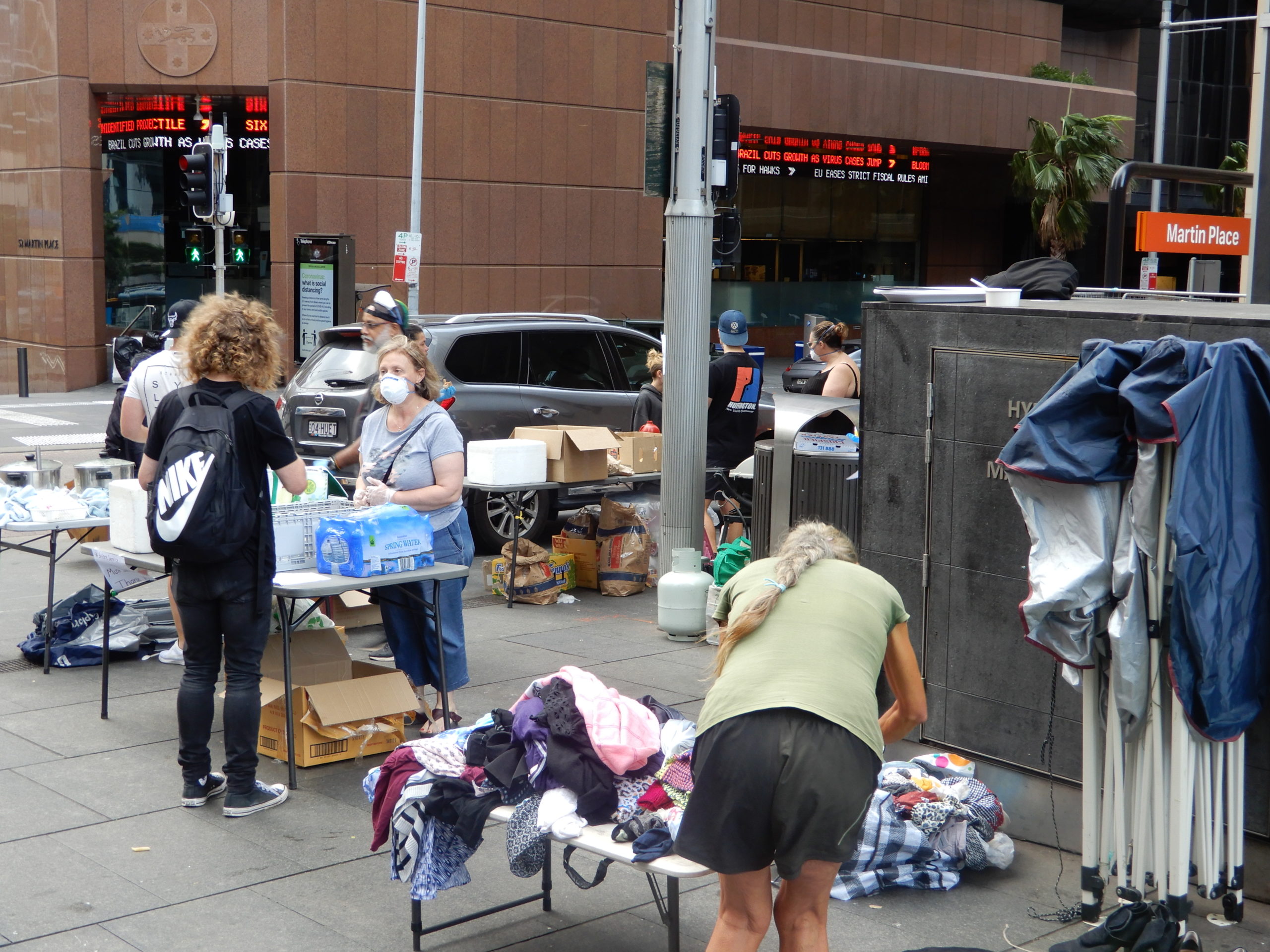
And lastly, Lanz, what special measures has your organisation the 24-7 Street Kitchen and Safe Space Community putting in place in this time of COVID?
We’re really concerned about homeless people having access to things like hand sanitiser. We’re concerned about the public’s access to it as well.
So, in public places, particularly where the homeless community are, we’re setting up hand sanitiser stations. I’ve just secured a supply at a reasonable cost.
From Wednesday night on, we’ll be setting up hand sanitiser stations at Martin Place. We’ve trialled it at the street kitchen. And they were happy, as they’d actually been asking for it already.
The stations will be set up at Martin Place, Central Station and other places that homeless people frequent. It will be for homeless people, but also for the wider public as well.
We’re hoping soon to supply all the homeless people with face masks. And we’re hoping to receive the masks from people we’ve supplied in the past.


